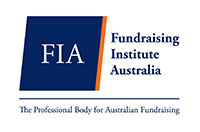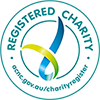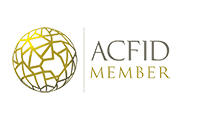| Last Updated: | 24 November 2022 |
| Purpose: | To ensure that Mary MacKillop Today recognises the rights and needs of people with disability, appropriately considers and involves people with disability in all activities, seeks to promote equal access to programs, and that people with disability benefit from our programs. |
| Additional Authority: | ACFID |
| Scope: | All employees and representatives of Mary MacKillop Today |
| Responsible Party: | Disability Inclusion Focal Point |
Mary MacKillop Today is committed to demonstrating inclusion in all aspects of our work practices from our programmatic approach to our human resource management, finance and administration, fundraising and communications.
Mary MacKillop Today is committed to providing equal opportunities for people with disability including by providing a work environment suitable for people with disability, employment based on merit and adapting the work environment to meet the needs of current staff who may have disability.
Mary MacKillop Today is committed to the inclusion and empowerment of people with disability in all programs. We also acknowledge that office accessibility is a current barrier to realising these commitments and endeavour to have accessibility for all people with disability.
The CEO shall appoint staff to form the Disability Inclusion Focal Point for the organisation and promote this important aspect of our work through activities such as staff training, policy revision, and tool development. Current tools include a disability checklist used in our design and reporting appraisal forms. We also
disaggregate participant data by disability.
Mary MacKillop Today acts in accordance with the UN Convention on the Rights of Persons with Disability and upholds the principle of ‘nothing about us without us’ by ensuring people with disability participate actively in decisions that affect their lives.
Mary MacKillop Today strives to work with people with disability to promote their human rights and empowerment. We work to promote disability in all our aid and development activities and ensure that people with disability are part of decision making in all stages of the program cycle. We also acknowledge the complexity and diversity of disability, including intellectual, physical, sensory and mental illness.
The Disability Inclusion Focal Point acknowledges that it is important for Mary MacKillop Today to consult with people with disabilities and establish partnerships with disabled people's organisations in Australia and other countries in which our projects operate. It is important that people with disabilities be given the
opportunity to provide feedback on what is working well and what is not from their lived experience. This will allow meaningful implementation of this Disability Inclusion Policy as persons living with disability can inform us what works best.
Mary MacKillop Today promotes disability inclusion in programming systems and approaches including in program planning, workforce planning for implementation of programs and in each stage of the project cycle.
Mary MacKillop Today adopts a twin-track approach to disability inclusion which involves supporting targeted programs for people with disability while ensuring disability inclusion is mainstreamed as a cross-cutting issue across all programs. This aims to ensure that people with disability participate actively in decision making at each stage of the project cycle.
Mary MacKillop Today systematically analyses the potential barriers (physical, attitudinal, technological, legal and communicative) to the participation of people with disability during assessments, including by analysing barriers that may arise due to the cultural context, and uses this analysis to design and implement
programs/projects that address these barriers, maximise positive impact for people with disability and minimise potential negative consequences/risks. Mary MacKillop Today demonstrates through its programming, that people with disabilities are capable and contributing members of society. Mary MacKillop Today acknowledges that there may be an intersection between gender and disability and takes this into
account in its programming.
Mary MacKillop Today monitors and evaluates all programs/projects in order to measure their relative impact on people with disability and uses lessons learnt in ongoing design and management. This information comes from extensive stakeholder consultation (including with government, direct participants and specialised
agencies/NGOs). Disability inclusion is measured through consultation with DPOs, participant data that disaggregates for people with disability, project monitoring and change stories.
Mary MacKillop Today promotes disability inclusion through training and professional development opportunities for employees, partners and other stakeholders. Training and professional development opportunities include LinkedIn Learning, ACFID courses, conferences and peer learning webinars.
Furthermore, Mary MacKillop Today actively shares information with the public and external stakeholders to promote disability inclusivity.
Complaints
Any complaints related to harassment or discrimination on the basis of disability should follow the reporting procedure outlined in the Anti-Discrimination and Prevention of Harassment Policy (1.1).
Disability:
Mary MacKillop Today defines disability as the interaction between a person’s impairment and the physical,
attitudinal, technological, legal and communicative barriers that exist within their environment which restrict
their realisation of human rights and full participation in society.







